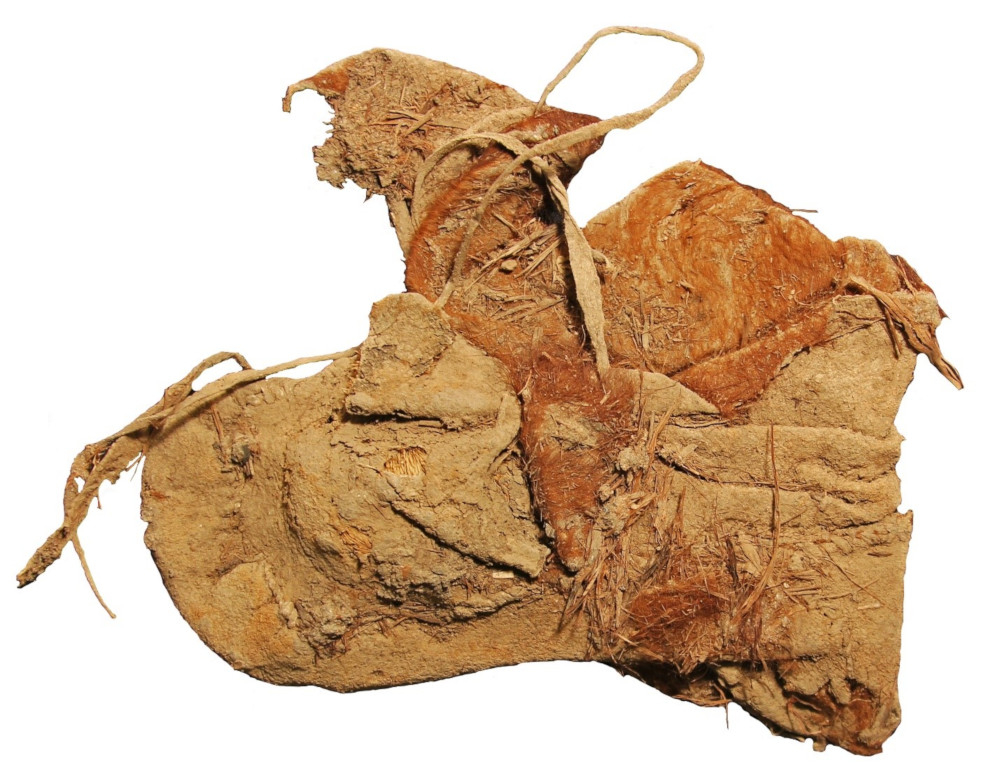
- Details
- By Native News Online Staff
THUNDER BAY, Canada — New research by anthropologist Dr. Jessica Metcalfe at Lakehead University in Thunder Bay, Ontario and other researchers provides direct evidence of long-distance connections among precolonial Dene peoples from northern Canada to the southern United States.
About 800 years ago a group of highly successful hunter-gatherers spent several decades living on the north shore of Great Salt Lake, Utah. Archaeological evidence suggests that these "Promontory people" were Dene ancestors whose moccasin styles indicate an origin in the Canadian Subarctic, more than 932 miles to the north.
Dr. Metcalfe’s research shows the Promontory people also made at least one journey even farther into the south and/or east, bringing back a scrap of leather that they incorporated into one of their distinctive moccasins.
“We can take a tiny piece of leather and determine if it has chemical signatures that are typical of the place where it was found, or if it came from somewhere else,” said Dr. Metcalfe, Assistant Professor in the Department of Anthropology at Lakehead University.
“Most of the Promontory materials were obtained close to the site, but this piece of leather came from far away – probably hundreds of kilometres to the south or east.”
Use of these cutting-edge techniques in archaeology is growing, but Dr. Metcalfe said this is the first time past human migrations have been reconstructed using chemical traces in footwear.
This research contributes to a longstanding archaeological puzzle: how and when did the Dene language family spread from the Canadian Subarctic into the American Southwest?
During the colonial period, these populations were seen as geographically separate and thought to have no direct connections with one another. However, Dr. Metcalfe’s research suggests that Dene groups travelled great distances to gain and utilize landscape knowledge. This likely facilitated the gradual migration of Dene ancestors from the Subarctic to the Southwest.
Recently, Dene people from northern, southern, and coastal nations have gathered at workshops and conferences held in Tsuut’ina territory (southern Alberta) to share their interconnected languages and cultures and to chart directions for the future.
The research of Dr. Metcalfe and her colleagues, along with genetic, linguistic, and oral history evidence, demonstrates that Dene connections are not a recent phenomenon – long-distance migrations and meetings of Dene peoples have been occurring for many hundreds of years.
Dr. Metcalfe’s research was published in the premier North American archaeology journal, American Antiquity, available here: https://doi.org/10.1017/aaq.2020.116
Other members of the research team include Dr. John (Jack) W. Ives and Jennifer Hallson (University of Alberta), Dr. Beth Shapiro and Sabrina Shirazi (University of California, Santa Cruz), Dr. Kevin P. Gilmore (HDR), Dr. Fiona Brock (Cranfield University), and Dr. Bonnie J. Clark (University of Denver).
The research was supported by Social Sciences and Humanities Research Council of Canada (SSHRC) grants awarded to Dr. Metcalfe and Dr. Ives.
More Stories Like This
Native News Weekly (August 25, 2024): D.C. BriefsZuni Youth Enrichment Project Announces Family Engagement Night and Spring Break Youth Programming
Next on Native Bidaské: Leonard Peltier Reflects on His First Year After Prison
Deb Haaland Rolls Out Affordability Agenda in Albuquerque
Boys & Girls Clubs and BIE MOU Signing at National Days of Advocacy
Help us defend tribal sovereignty.
At Native News Online, our mission is rooted in telling the stories that strengthen sovereignty and uplift Indigenous voices — not just at year’s end, but every single day.
Because of your generosity last year, we were able to keep our reporters on the ground in tribal communities, at national gatherings and in the halls of Congress — covering the issues that matter most to Indian Country: sovereignty, culture, education, health and economic opportunity.
That support sustained us through a tough year in 2025. Now, as we look to the year ahead, we need your help right now to ensure warrior journalism remains strong — reporting that defends tribal sovereignty, amplifies Native truth, and holds power accountable.
 The stakes couldn't be higher. Your support keeps Native voices heard, Native stories told and Native sovereignty defended.
The stakes couldn't be higher. Your support keeps Native voices heard, Native stories told and Native sovereignty defended.
Stand with Warrior Journalism today.
Levi Rickert (Potawatomi), Editor & Publisher

